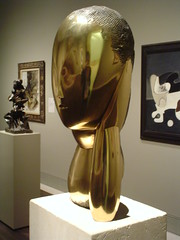Home Geography
[Here's a snippet of something I discovered in the Fiction folder on my laptop since we've been here and decided to post it since it's so thematically consistent with my posts of the last few days. I started writing it during one of my early morning writing sessions this year but seem to have abandoned it midway through. But for the names it's not really fiction.]
It’s an evocative geography—this ramshackle street in a crummy little town. It gets you, the inconsistency of the houses, some mildly middle-class, some consigned to be rentals, left in tatters. It’s poignant, that a place so easily dismissed or left to ruin could hold your imagination so thoroughly. The slope of the street makes you sentimental. When you turn onto the street, heading south, away from the river, you see how the road moves downward, slanting toward your mother’s front yard. It’s poetic, but lousy too—the house in which you grew up sits at the low end of the slope; the yard collects rain every spring. A swamp. A lake. In the spring seasons of your youth, you were thrilled to find ducks there, stopping for a rest on their homeward migration. Once you called the local paper to see if they’d take a photo but they never responded to your call.
The house itself is white with green trim. The green paint peels. The outside walls are sided with aluminum, which is cracked in places from various winter storms. The front lawn rolls, but not in a sprawling suburban way. The ground wasn’t pressed flat when the sod was laid, a thousand years ago, in the prehistory of this place before your parents moved you here. And it’s a small yard.
(You lived in one other place before this one: an apartment in an old brick walk-up on the forgotten east side of town. As a child, you were shown it innumerable times, directed by a parent’s pointing finger as you sat, buckled in, in the back seat. “That’s where we used to live,” one of them would say, as though it still had currency. As though it weren’t from some distant part of your experience, before early memory even. They—you—were only there a year, when they were first married, and for a short time after you were born. Then they bought this house, your house, your place, on the West side, and this became the only place you ever really knew.)
Out front of the house, the asphalt in the road is cracked. It has been patched over many times by city workers. Hot tar wedged into the fissures to hold this street together for a little more time. On summer days, strolling bare foot, you walked those haphazard tar trails like a tightrope, balancing your way on tiptoes to cross the street. The asphalt would have scalded your soles but the tar saved you. You have spent much time looking downward, taking in the topography of this road, these sidewalks. The concrete in front of your house is patched with old gum, grey and black blotches to mark the times when some kid grew tired of the wad in his mouth and tossed it carelessly aside. There are cracks in the sidewalk too. Cracks between sidewalk blocks. Cracks where humidity and age and shoddy workmanship and whatever else caused a split in the pavement. You try to avoid stepping on any of them, even still. Your mother’s back is at stake.
Long ago, these sidewalks were chalked colorfully with hopscotch grids. When you were very small you watched from the front steps, at the older girls in their gymnastic poses, bending over, stretching flexible limbs in unlikely ways to pick up their markers from the ground. There were so many children in those days, it seemed. A population of Frisbee-throwers, and toy-gun-wielders, running up and down the road. In the early days you were a mascot to them, the tag-a-along for older kids when they played hide and seek. “Don’t give me away,” one kid would whisper to you, pressing you close to him behind the bushes. “If we get found, you’re dead.”
But nobody ever harmed you then. You were blessed, protected. Even when you made it to school, blocks away, you felt secure. Escorted in your travel by the older kids who would come to pick you up. Guarded in the school yard by Billy from next door, the toughest kid around. You watched him bloody another boy’s nose once. It horrified you but made you feel safe all the same.
If you walk down the street, moving from the north corner to the south, you can still hear the hopscotch calls and the squeals of laughter when some poor kid gets ambushed behind a car during hide-and-seek. They call to you from the past. The sound of their sneakers scraping on the pavement echoes still. Francis, the tall boy with the lateral lisp. Or Henry, the quiet kid who lived with his grandfather and never participated in any games. Moving South, you get to the Lalibertes, a kid extravaganza, the family of eight. The oldest children weren’t like kids to you; they never seemed like possibilities for Frisbee or toy cars on the sidewalk or a pepper game with an Indian rubber ball in the middle for the road. They drove cars; they smoked cigarettes; they were adults. So many Lalibertes, the names flowing like reindeer in a Christmas rhyme: Jimmy, Johnny, Matthew, Veronica, Helene, Andrew, and Elizabeth, whom everybody called Betsy.
20 June 2006
Subscribe to:
Post Comments (Atom)

2 comments:
That was great!
When are you going to post more???
Hmmmm?!?!?
:)
Hmm. Very evocative. Good bones.
Post a Comment